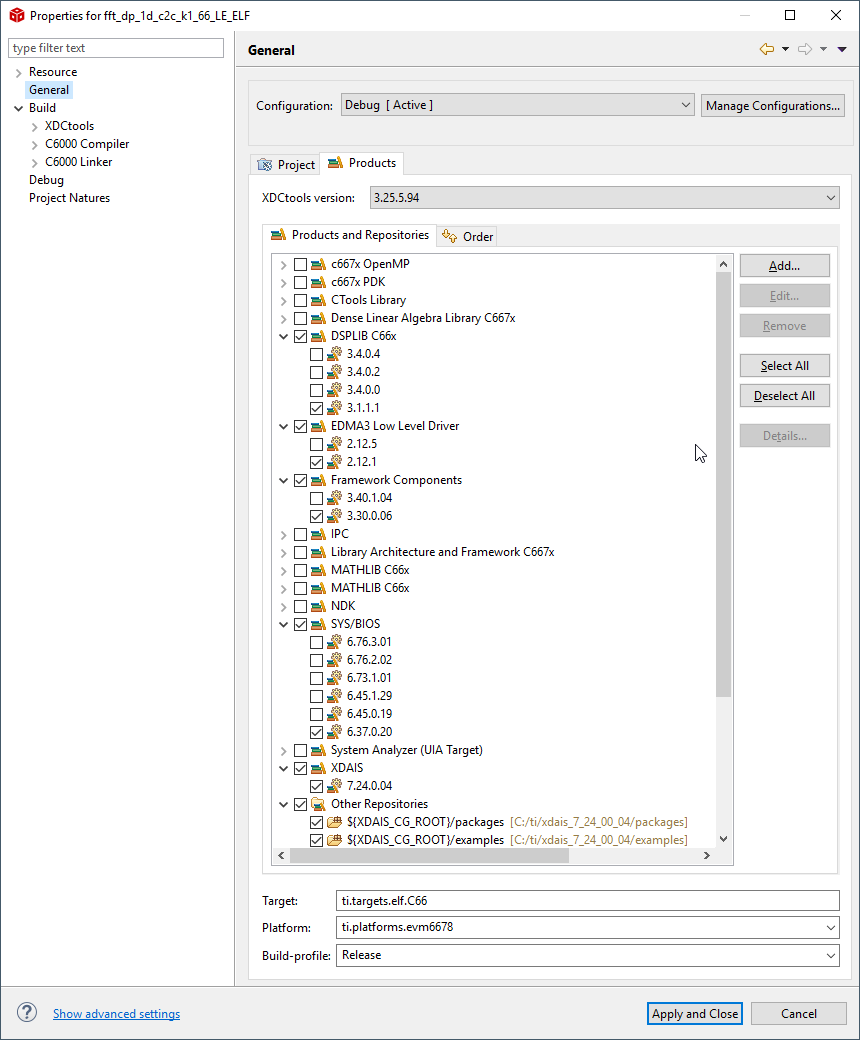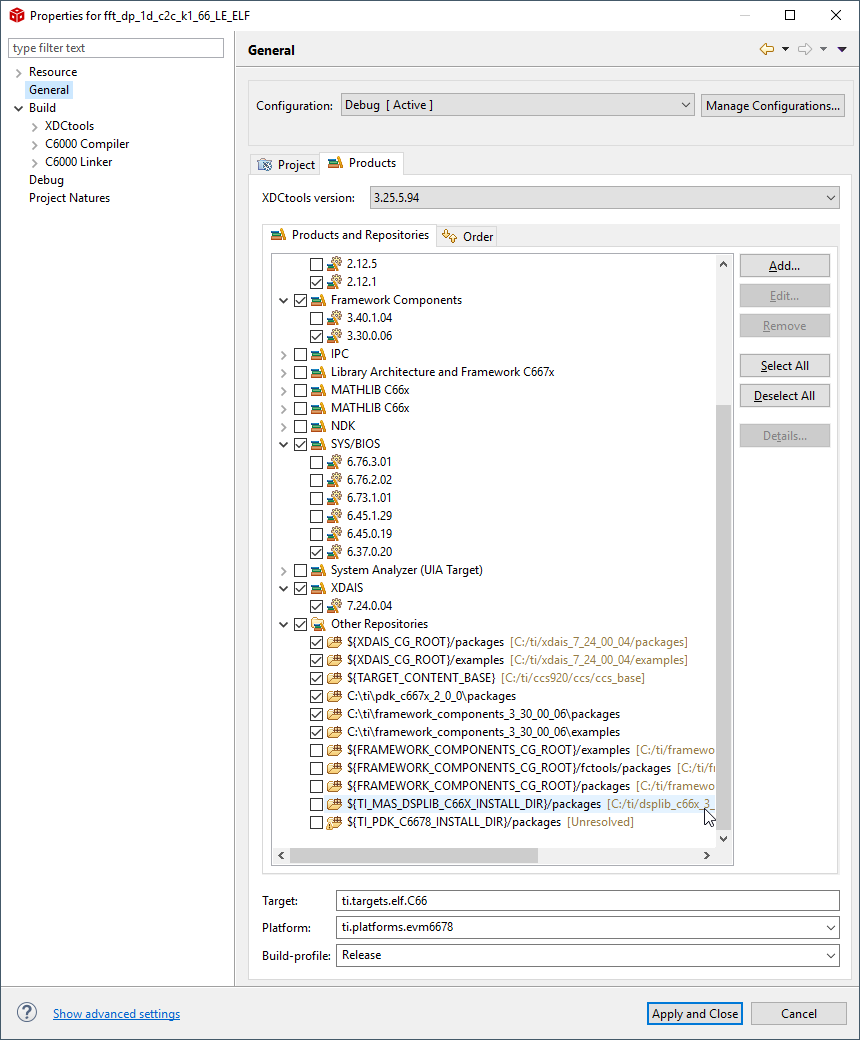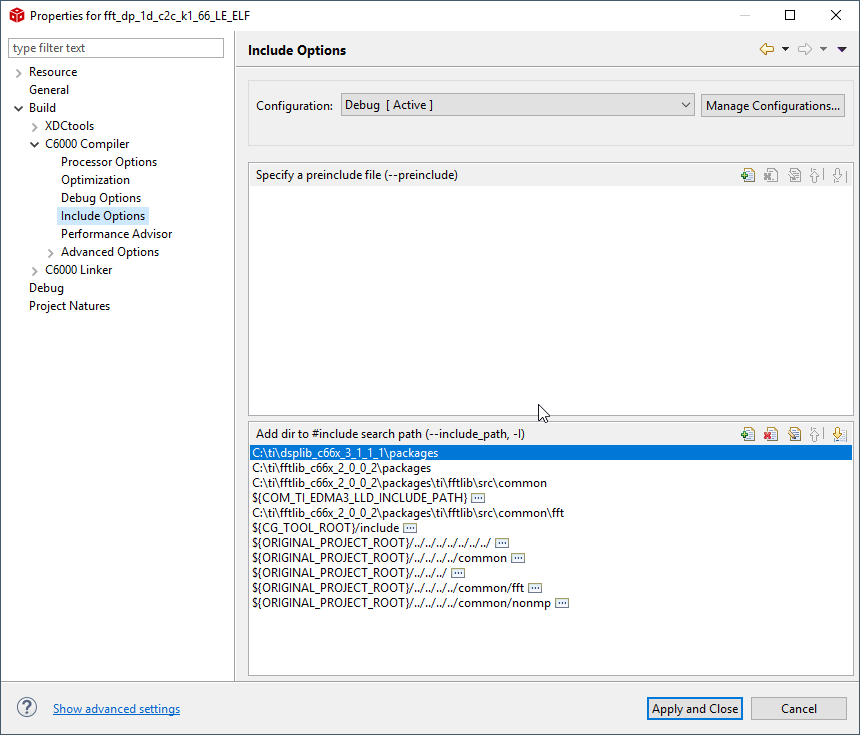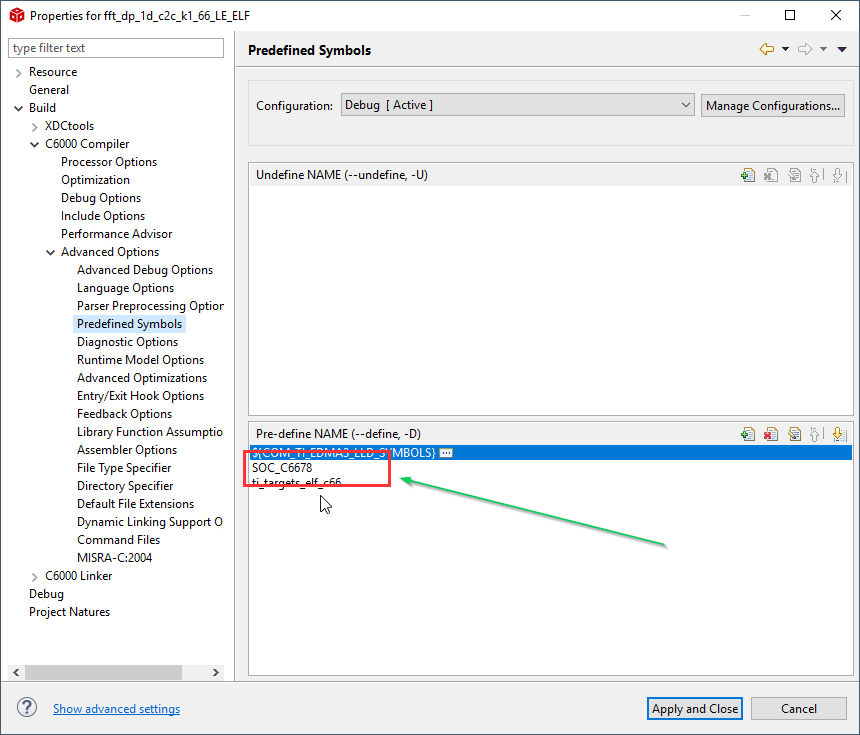Part Number: TMDSEVM6678
Tool/software: TI C/C++ Compiler
Hi All,
Previously, I have asked how to build fftlib unit test examples; below I described the configs I used to achieve this task.
First and foremost, fftlib is no longer maintained by TI as discussed in another post here; however, you are can still download and compile it if you need to ...
Steps I followed are as below (which worked for me) although the accuracy and correctness of the fttlib code is still not clear for me because as far as I could run the unit test examples I can see some differences between fftlib vs. dsplib implementations.
Here are the steps to build fftlib unit tests
Import the examples from C:\ti\fftlib_c66x_2_0_0_2\packages\ti\fftlib\src\fft_dp_1d_c2c in CCS (Code Composer 9.2 ) as you see below:- Then open project properties and match screens as you see below:
- Added the SOC_C6678 to defined symbols as you can see below:
- Rebuild the project and it should compile all well.
Hope it helps sb ...
Cheers,
Mike








